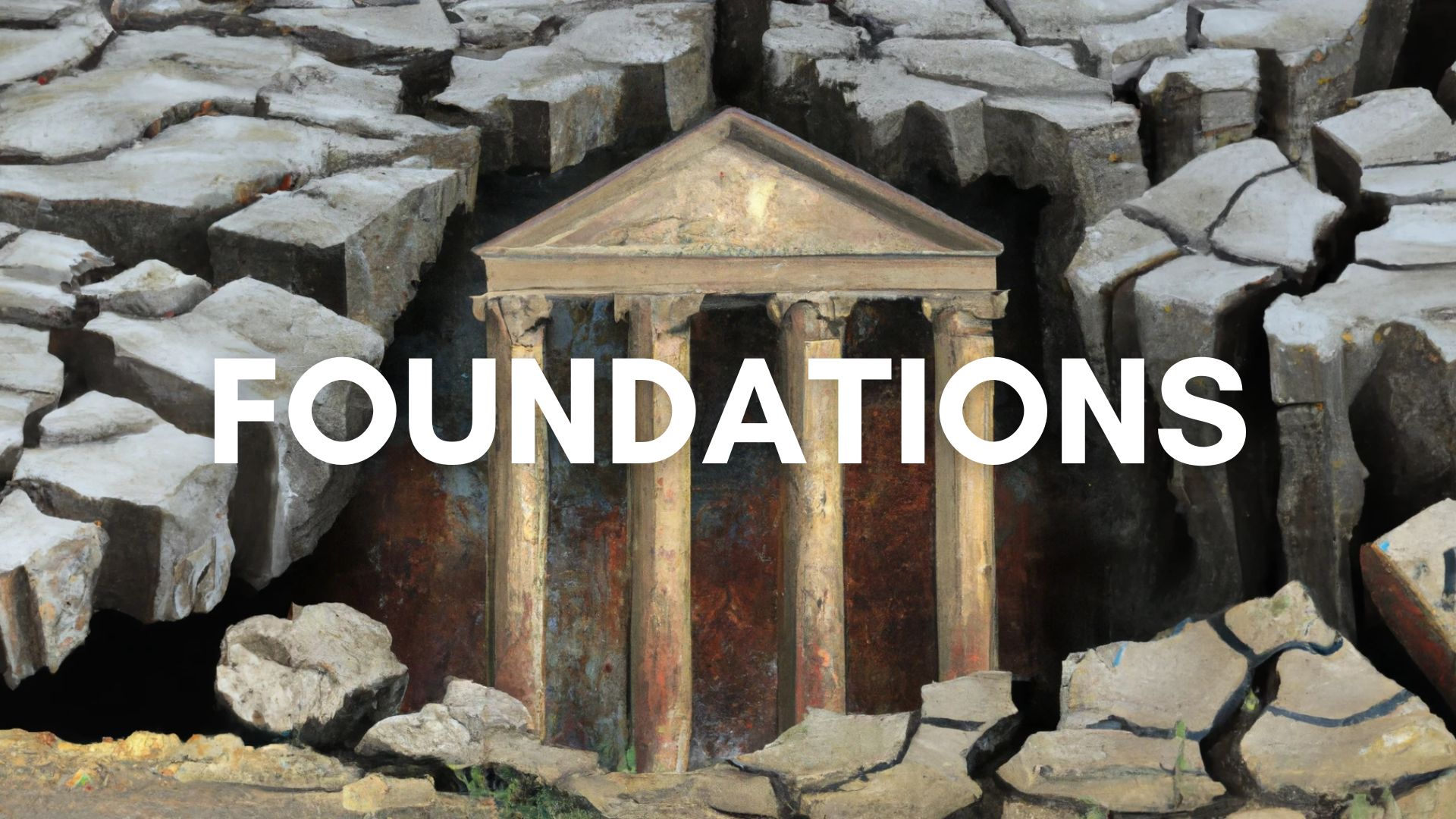FOUNDATIONS: How to be the Church
This is a continuation of a series that began in February 2023. Join us as we take a closer look at each building block of FHC’s Mission Statement using the book of Colossians as our lens:
“To be a relationally driven community that seeks to encounter God, empower Christ-centred lives, and faithfully serve others"
Scripture: Colossians 4:2-18
In his closing words to the Colossian Church, Paul offers helpful clues as to what it looks like for the church to live out its calling in a broken and confusing world. Firstly, Paul’s priority is in how the church practices prayer. With the assumption that they are already praying, Paul clarifies their prayers by giving them 3 directives on what prayer actually is:
1.) “Watchful with thanksgiving”: As we respond to the world around us, the role of prayer according to Paul here is that it keeps its eyes open to the world while also framing it within the context of a God who is deeply involved and is good. Therefore, no matter what we see in the world, the net result of our prayers is that thanksgiving will always outweigh our worries.
2.) “open to us a door”: Despite being in prison and behind physical bars, Paul’s priority was always the Gospel and its ability to make its way into people’s hearts. For this reason, it is significant that Paul’s hope is not that he would be saved from his situation but that the situations of those around him would lead them to Christ. In this way, Paul demonstrates how God’s word can never be contained no matter how bleak our situations may be and that, through prayer, hope will always abound.
3.) “make it clear”: Echoing his opening words in Colossians 1:15, Paul describes for us prayer’s ability to make manifest what is invisible to our earthly eyes. Namely, the mystery of Christ that we miss when we are blinded by our earthly situations. Through prayer, believers have the power to take their petitions to God and to make manifest His will through their willing participation.
Secondly, Paul’s closing words call believers to be faithful not by following the patterns of the world but by “walking in wisdom” and “season[ing] with salt”. In our increasingly busy world, it can be extremely difficult to slow down enough to keep in step with the wisdom of God. What this means is that while we are often overly busy, God is calling us to slow down and to simply “walk” with him. In addition, when we consider our place in the court of public opinion, it is important to consider how we are able to “season” a conversation in a way that is complimentary and not overpowering. Using cooking terms, Paul is expressing the wisdom of knowing how much and how little of our faith is needed in every situation. Not that faith should be limited but that there are limits to what some palettes can and can’t handle.
Thirdly, Paul makes it clear just how wide and diverse the body of Christ is in the variety of names he has to thank for the parts they play in the church. Indeed, this is especially true in considering the wide spectrum of characters which include Onesimus, a runaway slave turned brother-in-Christ, and Epaphras, a leader in the community and possible fellow prison mate with Paul. Both of whom are from the very same church Paul is addressing.
Lastly, Paul’s call for the church to “remember my chains” is a stark reminder of our roots and the kinds of foundations the church has always been built upon. Put bluntly, the church has never been afraid of failure as the world defines it. Rather, it is in these so-called “failures” that the church has always found its identity and power. To this effect, the words of C.S. Lewis ring true, “No amount of falls will really undo us if we keep picking ourselves up each time. We shall of course be very muddy and tattered children by the time we reach home. But the bathrooms are all ready, the towels put out, and the clean clothes in the airing cupboard. The only fatal thing is to lose one's temper and give up. It is when we notice the dirt that God is most present in us; it is the very sign of his presence.” Therefore, if we hold true to these principles that we have learned while working through the letter of Colossians, there is hope yet that these foundations we are laying will be sturdy enough to build upon as they will be revisited time and time again.
Study Questions:
1.) In what ways has God encouraged or challenged you in your prayers?
2.) What does it mean for you to “season” your conversations with faith appropriately and to “walk in wisdom”?
3.) What is the “open door” that you are praying for right now in the situation that you are in?
4.) How can our churches better reflect the diversity of the body that Paul describes in this list of names?
5.) How do you define “failure” in your life? Has the Gospel changed that?
6.) Which portion of this Foundations series stood out most to you and has been most helpful in your journey?

